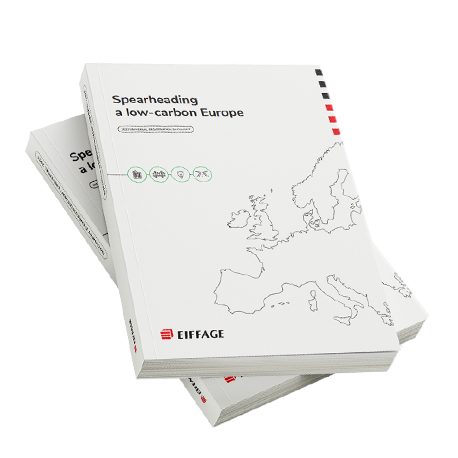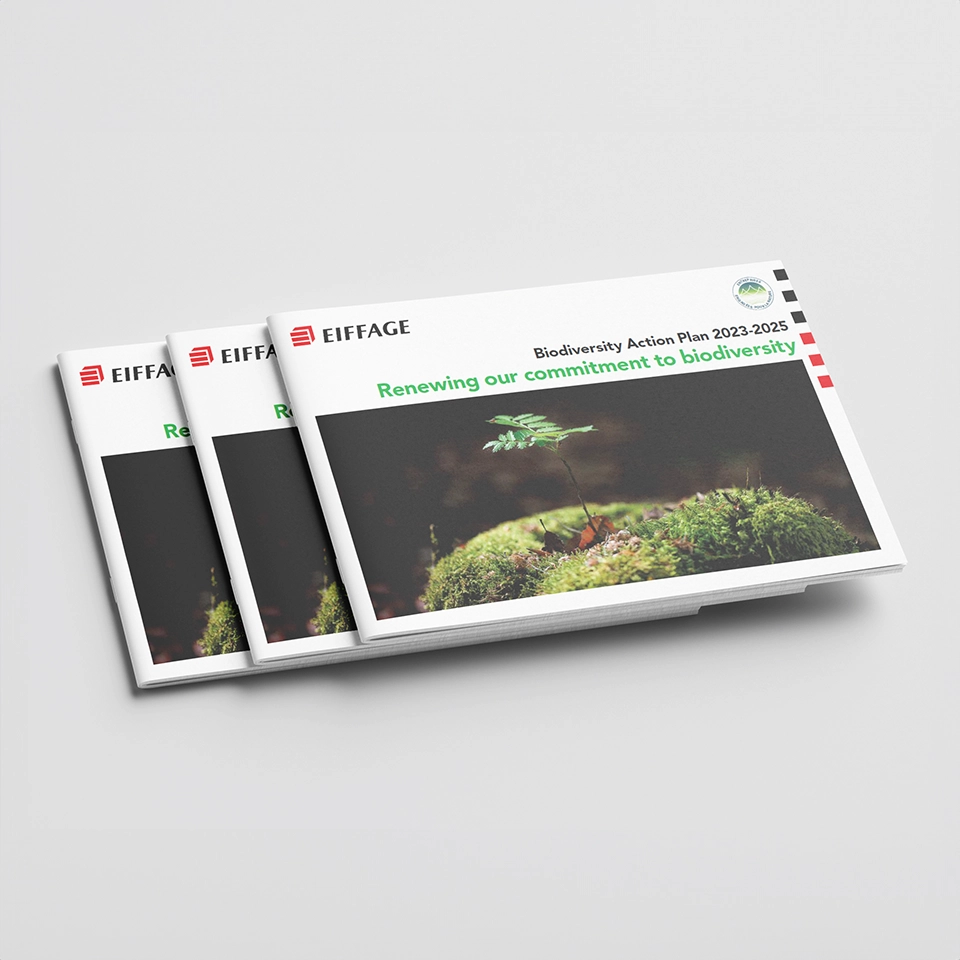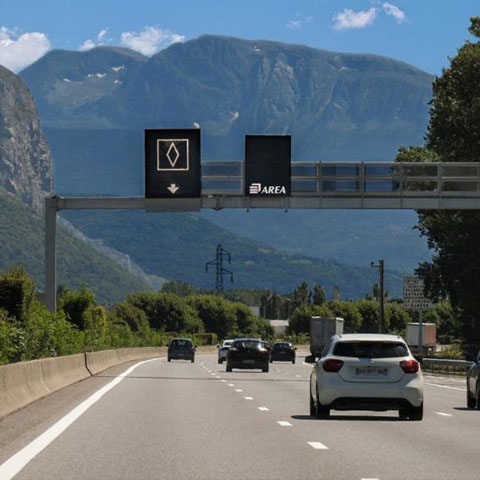Our vision
As a key player in urban construction and sustainable infrastructure, we incorporate low-carbon transport into our urban or suburban planning projects in a move away from highly individualised forms of transport overly reliant on fossil fuels in favour of driverless shuttles, carpool motorway lanes, smart lighting, electric mobility and urban cable cars.
Our principles
- Reduce carbon emissions while ensuring mobility for everyone.
- Support the development of low-carbon, low-impact forms of mobility.
- Enhance public transport to help meet the ‘no net land take’ target.
The keys to success
- See mobility as a real system and a comprehensive service that combines the Group’s expertise across all road, energy and planning business lines.
- Systematise services based on regenerating/reusing materials without adding petrochemicals.
- Make public transport more attractive by providing significant and concrete incentives (bus rapid transit systems, more extensive routes, safe special lanes, discounted fares, etc.).
Making public transport more attractive
Mia, the first driverless shuttle
In 2018, Eiffage Énergie Systèmes and its partners launched Mia, a fully electric driverless shuttle. Tested on the Les Gaulnes business park in Meyzieu-Jonage near Lyon, Mia provides a concrete innovative solution that is tailored to the needs of employees who often call for a better service for the first and last kilometre.
Connected to the public transport network, the shuttle runs every 15-20 minutes along a 2.4 km route to meet employees’ needs. When stationary, Mia charges its batteries under a photovoltaic canopy.
Two hundred and sixty testers/users have already taken part in the experiment since the shuttle entered service in early March 2019. The aim is to reach 300 active users as soon as possible to get their feedback on, refine and improve the service during this two-year experiment – the longest of its kind in France.
Urban cable car
Following on from the research conducted by the Phosphore programme, Eiffage’s multidisciplinary R&D laboratory on post-carbon cities, Eiffage launched a collaborative partnership for public transport interconnections and cable technologies (I2TC). This project aims to create high-quality urban public cable transport in France and adapt this innovative form of transport to meet the constraints, needs and challenges of modern sustainable cities.
For this project, Eiffage Métal is leading a consortium of seven other partners comprising French cable transport specialist Poma, the RATP, consultancy firm CDVIA, digital agency The Vibrant Project, Paris I Panthéon-Sorbonne University, ENSTA ParisTech and École centrale de Lyon. Investment bank Bpifrance, the Greater Paris regional council, the Rhône-Alpes regional council and Paris city council are providing up to €4.3 m in funding.


